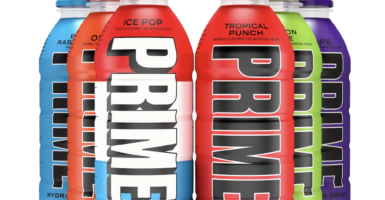Walgreens Being Subject To Mass Boycott, Here’s Why
Twitter users are "boycotting" Walgreens after news came to light that it would no longer sell the "abortion pill," Mifepristone, at stores in states that have enacted or are trying to enact abortion bans.
This article is more than 2 years old

Popular pharmacy Walgreens is under fire for announcing on Thursday that they will no longer sell Mifepristone, the “abortion pill,” in 20 states, most of which have abortion bans in place after Roe v. Wade was overturned last year. Many enraged consumers took to Twitter, with Walgreens and #BoycottWalgreens trending for over 24 hours. Though some spoke up in support of the Walgreens policy change, more bashed Walgreens for making reproductive healthcare even less accessible for those who need it in those states.
The new Walgreens abortion pill policy comes after 20 Republican attorneys general wrote a letter to Walgreens and other popular pharmacies, including Walmart, Costco, and CVS, detailing laws that might be broken if they kept providing abortion pills through the mail. The other pharmacies haven’t released any response or new policy information, but Walgreens sent a letter back to the attorneys general, confirming that they would not distribute abortion pills in any of their states. This policy includes Kansas, Montana, Iowa, and Alaska, where abortion procedures and medications are mostly still legal.
Walgreens and other retail pharmacies were previously unable to sell the abortion pill which, until January, was accessible only through physicians or mail-order pharmacies. Walgreens was, at the time, intending to become FDA-certified to distribute abortion pills and, according to Business Insider, this is still their intention—but only to states in which the sale of abortion pills is legal. This policy may cause them more harm than good after the recent Twitter blowback, as hundreds of people who get their prescriptions filled at Walgreens transfer them over to other pharmacies.
In addition to the general public outrage, several high-profile individuals have expressed frustration with the new policy as well, including Illinois governor JB Pritzker, who’s the highest elected official in the state where the Walgreens headquarters are located. Pritzker said that the government will stand with other pharmacies that will continue to provide access to reproductive healthcare, which may spell out problems for Walgreens. Several government leaders and influential celebrities also took to the Twitter-verse to encourage others to boycott Walgreens and support other pharmacies.
The abortion pill, Mifepristone, has caused lots of drama lately as the subject of multiple lawsuits, including one in Texas in which a judge may overturn the FDA’s approval of the pill. Many Democrats are staunchly against this, arguing that banning the abortion pill will lead to an “unprecedented spike” in mortality for pregnant people. General misinformation about the intent and use of the abortion pill only fans the flames in states where abortion procedures have already been banned.
Contrary to some misconceptions, abortion pills cannot be used into the second and third trimesters to terminate a pregnancy; abortion pills are only prescribed and effective during the first 10 weeks of pregnancy. At this point in the pregnancy, the fetus will only just have lost a tadpole-like tail and is roughly the size of an original Polly Pocket, so the sensationalized images of small, fully-formed babies being “killed” by the abortion pill are, at best, false. Many online feel that Walgreens, by refusing to sell the abortion pill in some states, is adding to the misconceptions, but only time will tell if the public outrage and boycott will make a difference in Walgreens’ business or policies.









